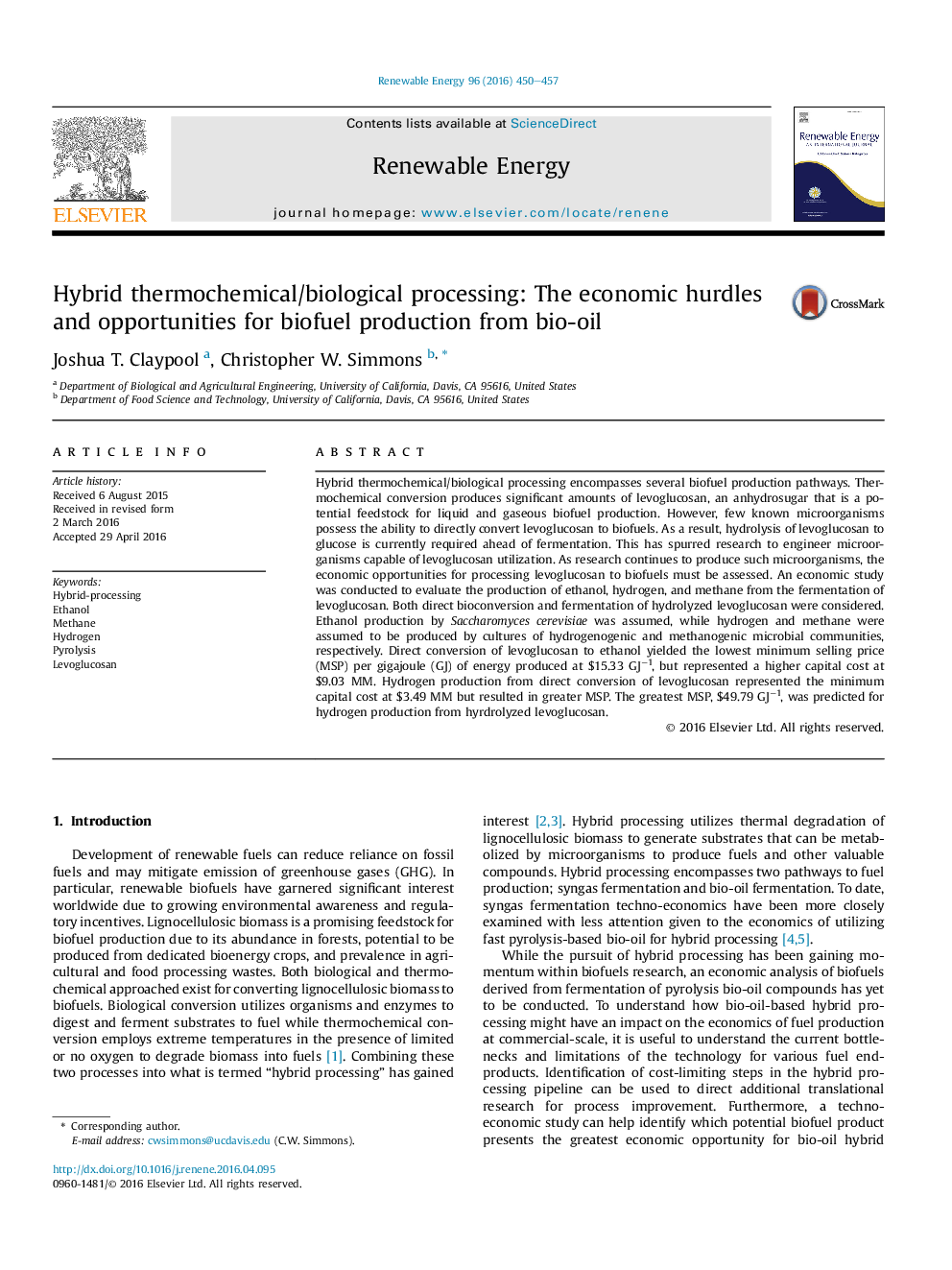| Article ID | Journal | Published Year | Pages | File Type |
|---|---|---|---|---|
| 10293888 | Renewable Energy | 2016 | 8 Pages |
Abstract
Hybrid thermochemical/biological processing encompasses several biofuel production pathways. Thermochemical conversion produces significant amounts of levoglucosan, an anhydrosugar that is a potential feedstock for liquid and gaseous biofuel production. However, few known microorganisms possess the ability to directly convert levoglucosan to biofuels. As a result, hydrolysis of levoglucosan to glucose is currently required ahead of fermentation. This has spurred research to engineer microorganisms capable of levoglucosan utilization. As research continues to produce such microorganisms, the economic opportunities for processing levoglucosan to biofuels must be assessed. An economic study was conducted to evaluate the production of ethanol, hydrogen, and methane from the fermentation of levoglucosan. Both direct bioconversion and fermentation of hydrolyzed levoglucosan were considered. Ethanol production by Saccharomyces cerevisiae was assumed, while hydrogen and methane were assumed to be produced by cultures of hydrogenogenic and methanogenic microbial communities, respectively. Direct conversion of levoglucosan to ethanol yielded the lowest minimum selling price (MSP) per gigajoule (GJ) of energy produced at $15.33Â GJâ1, but represented a higher capital cost at $9.03Â MM. Hydrogen production from direct conversion of levoglucosan represented the minimum capital cost at $3.49Â MM but resulted in greater MSP. The greatest MSP, $49.79Â GJâ1, was predicted for hydrogen production from hyrdrolyzed levoglucosan.
Related Topics
Physical Sciences and Engineering
Energy
Renewable Energy, Sustainability and the Environment
Authors
Joshua T. Claypool, Christopher W. Simmons,
